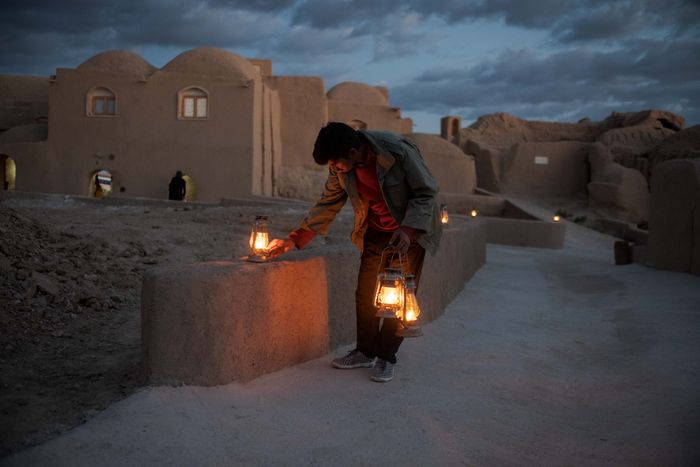Iranians are used to crises: political instability, international trade sanctions, earthquakes, water scarcity, and now Covid-19. A high dependence on agriculture makes the country’s rural areas especially vulnerable to external factors, culminating in an ongoing rural exodus. Tourism is seen as an option to strengthen rural areas. Esfahk village shows how it can work without creating new dependencies.
Over the past three decades, an average of one million Iranians annually have moved to metropolitan areas. Of the 64,000 villages in the country, more than half have almost deserted. To reverse this trend, rural tourism has been at the top of Iran's national tourism policy agenda, resulting in a drastic raise in the number of local accommodations in recent years.<o:p></o:p>
While people in other villages were already operating their own local guesthouses, the residents of Esfahk wanted to find a common solution, rather than to each start on their own. In 1978, a 7.4 magnitude earthquake had hit their oasis village in South-Kohorasan, 550 kilometres southeast of Tehran. The historical adobe structure had fallen into ruins and a new village been built 700m from the old one.<o:p></o:p>
After thirty years of being abandoned the ruins of old Esfahk again became the centre of attention of the 800 residents in 2009. Engaging in an open dialogue and relying on external advice, Esfahk residents transformed their old village into a community-based tourism project.<o:p></o:p>
A participatory approach<o:p></o:p>
The idea of restoring the old village centre lead to discussions that seemed inconclusive at the beginning. Whereas many of the younger generation saw an opportunity to increase their income and to revive the village’s cultural heritage, many elders still remembered the earthquake or were concerned about negative effects of tourism in the village. In fact, many Iranian villagers have entered the field of tourism without a clear approach or administrative structure, resulting in new difficulties for many rural communities, such as overconsumption of natural resources, competition over customers, commercialization of local customs and social alienation within the village community.<o:p></o:p>
In Esfahk, a group of younger residents, together with the mayor, took initiative by consulting restoration and tourism experts as well as cultural authorities in Tehran. With their help, they started the reconstructing process, revived traditional knowledge and updated it with modern techniques, leading to the village’s first earthquake resistant clay structures. The promising results convinced more people in the village to join the project and to engage in debates on the pros and cons of tourism for the development of their village. <o:p></o:p>
When the residents finally started to take serious interest in the restoration of old Esfahk in 2015, the project had already turned into a participatory task for the whole village with a professional approach to tourism and a clear vision. <o:p></o:p>
Community-Based Eco Tourism
Today, seven restored residential buildings offer an authentic desert life experience to up to 100 guests. Last year, about 3500 guests visited Esfahk, accompanied local farmers to the fields and learned how to prepare local dishes and handicrafts. University classes from Tehran, Italy or France attended adobe architecture workshops at the village’s own clay research center.
<o:p></o:p>
<o:p></o:p>
A strategy that appears to be all the more vital now. In 2020, the country’s tourism sector has been severely damaged. In spring, a total travel-ban followed a breakout of Covid-19 in major Iranian cities. Even before, the political tensions between Iran and the U.S. have led to an economic downturn. As a result, some guesthouses in the country already had to close down. Esfahk community, however, despite the government recently lifted the travel-ban, does not feel the need to reopen with haste. Instead, they focus on their farmlands and monitor the ecological restraints of their village. Currently, they are installing water-purifying septic tanks to recycle wastewater for agricultural use.<o:p></o:p>
The extent to which Esfahk Historical Village may function as long-term model for the development of rural areas in Iran remains to be seen. Yet, Esfahk residents managed to implement community-based tourism as a tool to strengthen their village’s resilience against crises.<o:p></o:p>
Salome Ghodsi-Moghaddam is an urban geographer and co-founder of Iran Closer Journeys, a specialist tour-operator for socio-cultural tours in Iran. She lives in Tehran. <o:p></o:p>
Esfahk Historical Village won the TO DO Award Socially Responsible Tourism in 2020. As the International Tourism Exchange (ITB) as venue for the award ceremony was cancelled in 2020, the ceremony will be held at the next ITB in Berlin, honouring the winners of both TODO Awards 2020 and 2021.<o:p></o:p>


